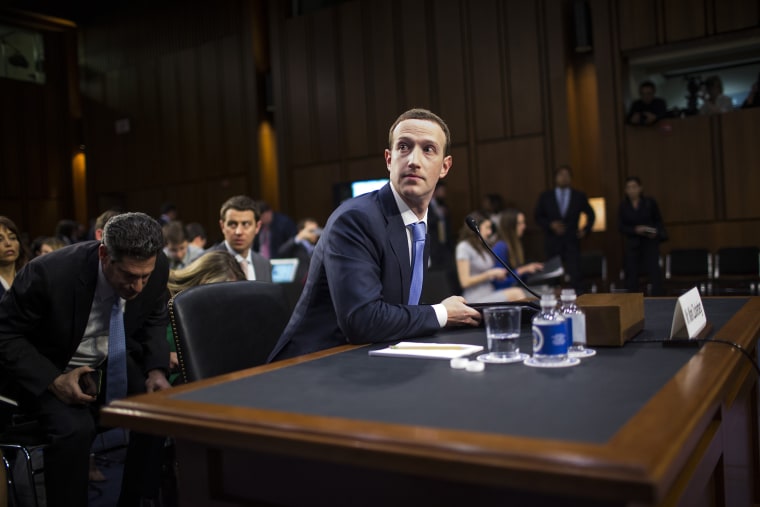A few thousand people on a highway Friday in Utah were the first to hear that President Donald Trump has a new running mate in the upcoming election: Facebook CEO Mark Zuckerberg.
Not true, of course, but a progressive activist plans to spend $50 a day to spread the message on billboards advertisements as part of a broader effort to criticize Facebook and Zuckerberg for their political advertising stance and their relationship with the president.
“This is a way of drawing attention to the fact that Trump and Zuckerberg are colluding to rig another election for the ruling party in the United States,” Adriel Hampton, the activist who’s behind the ads, said in a phone interview.
Hampton, 41, has been a thorn in Facebook’s side for weeks as he has protested the company’s decision not to fact-check ads of political candidates. Hampton, like many Facebook critics, thinks Facebook should refuse false ads from candidates.
The billboards touting Trump-Zuckerberg 2020 began running Friday on the highway near Eagle Mountain, Utah, where Facebook has a data center, Hampton said.
Hampton, a professional marketer in San Francisco, said he turned to satire after NBC News reported this week that Trump hosted Zuckerberg for a previously undisclosed private dinner at the White House this month, a level of contact that Hampton said reflected broader cooperation between the social media company and the president’s re-election campaign.
Facebook did not immediately respond to a request for comment. A Trump campaign official also did not immediately respond.
Zuckerberg has defended the company’s loose oversight of political advertising as important to free speech and fair elections, and he has said that transparency — making all ads searchable, for example — is better than censorship by the company. Twitter last month went in a different direction, banning most political ads, and this week Google scaled back some of the targeting capabilities previously available to political advertisers.
To test Facebook’s policy, Hampton in October filed papers to run for governor of California, a status he thought would let him run false ads, too, though Facebook made an exception and decided it would fact-check him, after all.
Trump won election to the White House in 2016 in part on the strength of his Facebook advertising operation, which the company itself said was more complex and larger than that of Democrat Hillary Clinton.
Facebook ads and organic posts are set again to be a major battleground for political messages in 2020, as campaigns and interest groups search for the most effective way to get in front of voters. Advertisers, voters and political campaigns are closely watching what policies Facebook has in place — and what Facebook might still change.
Hampton said he thinks Zuckerberg is lobbying Trump to try to block proposed regulation of social media, “currying favor with the party that controls the White House and the Senate that could actually do damage to his company.”
He said he’s starting out spending $50 a day on the billboards, which are digital and show the Trump-Zuckerberg ad for 4 to 10 seconds at a time. In one hour Friday, the ad was shown on four billboard locations and was seen by an estimated 2,300 people, Hampton said, citing numbers from the billboard company. Because the billboards are digital, the times when the ad runs and the price vary based on bids that Hampton submits.
Through the Really Online Lefty League, or TROLL, a political committee he helps run, he said he plans to also run the ad on billboards in California, where Facebook is based, and in Maryland on a road heading into Washington, D.C.
CORRECTION (Nov. 22, 2019, 3:12 p.m. PT): An earlier version of this article misstated the political affiliation of Adriel Hampton. He is unaffiliated, not a Democrat.
